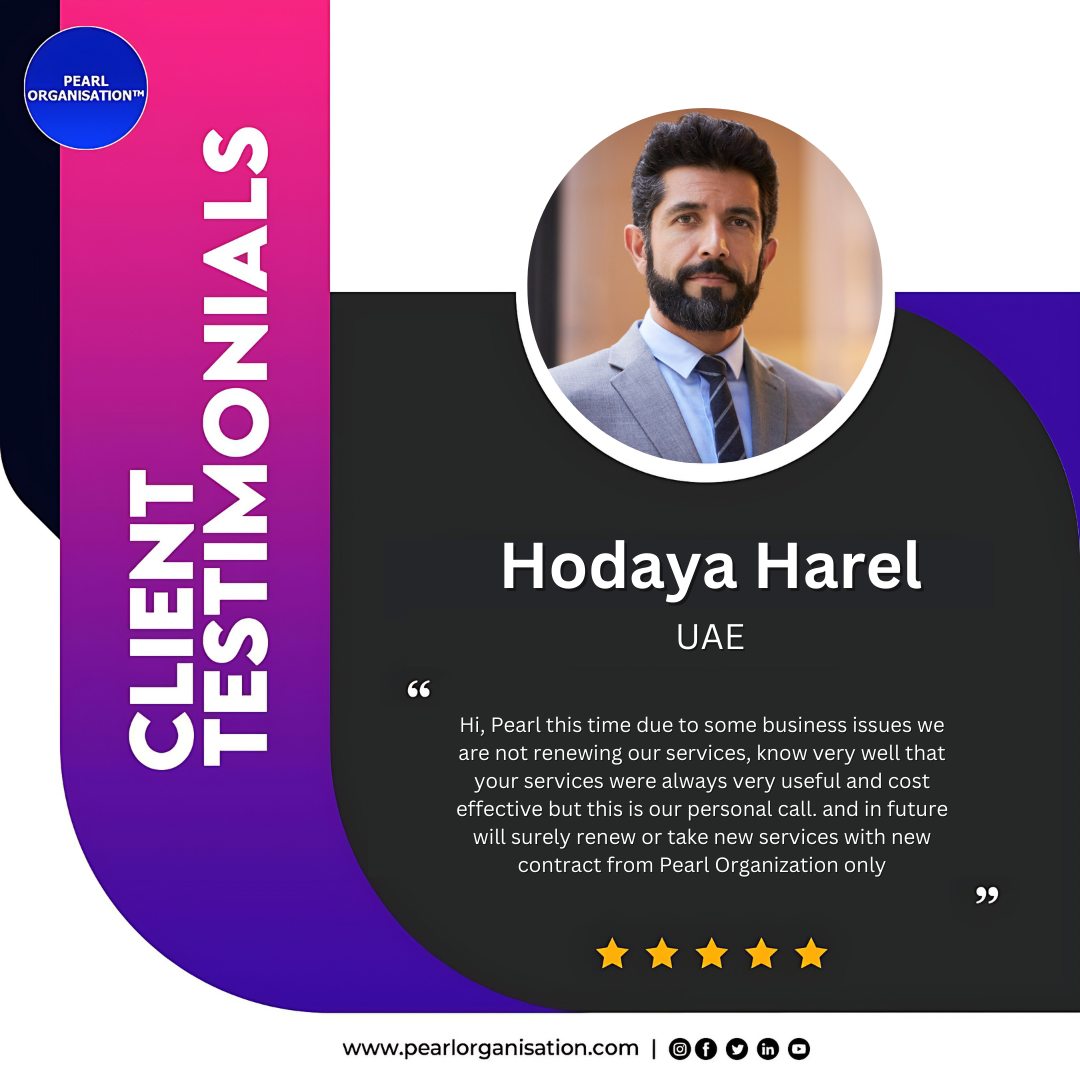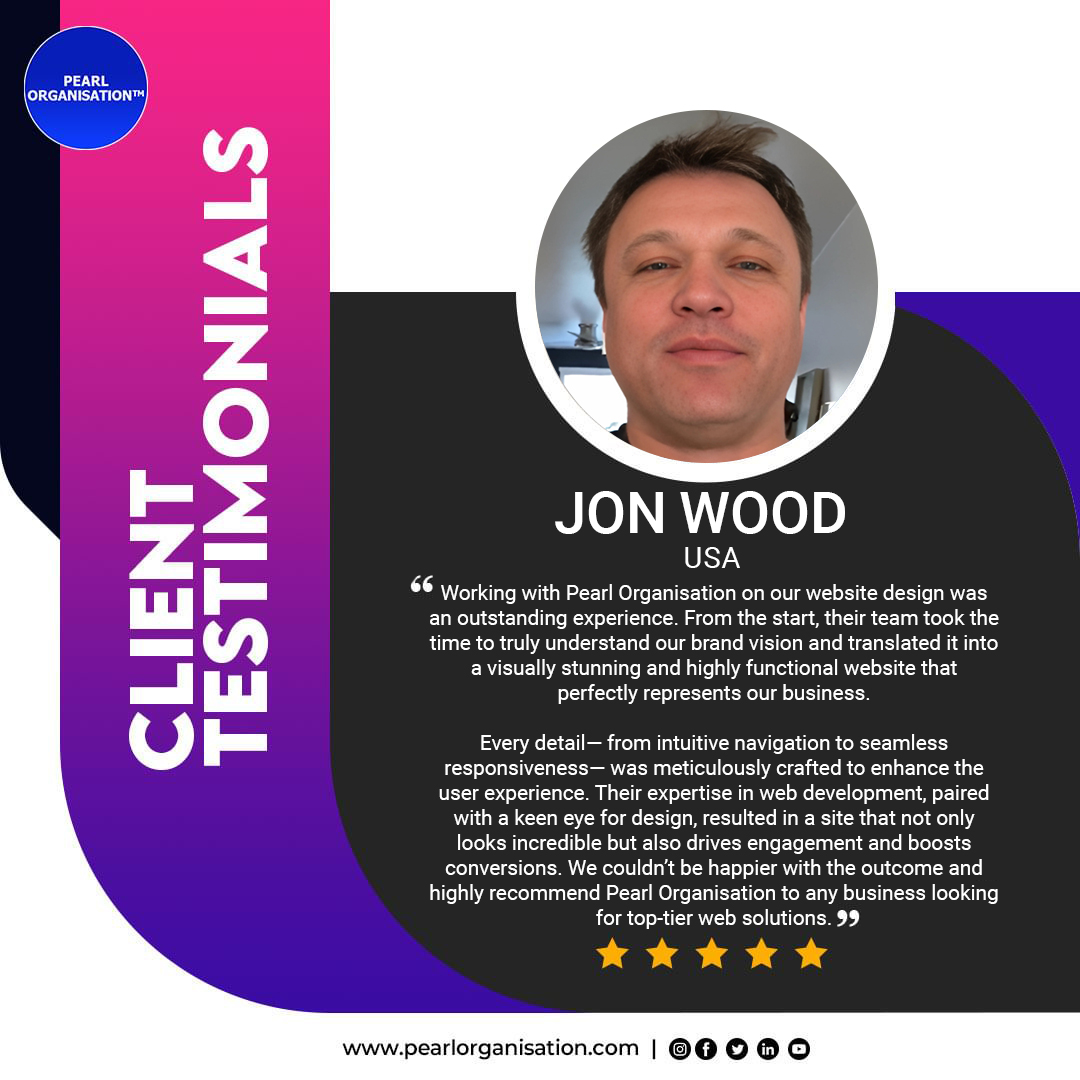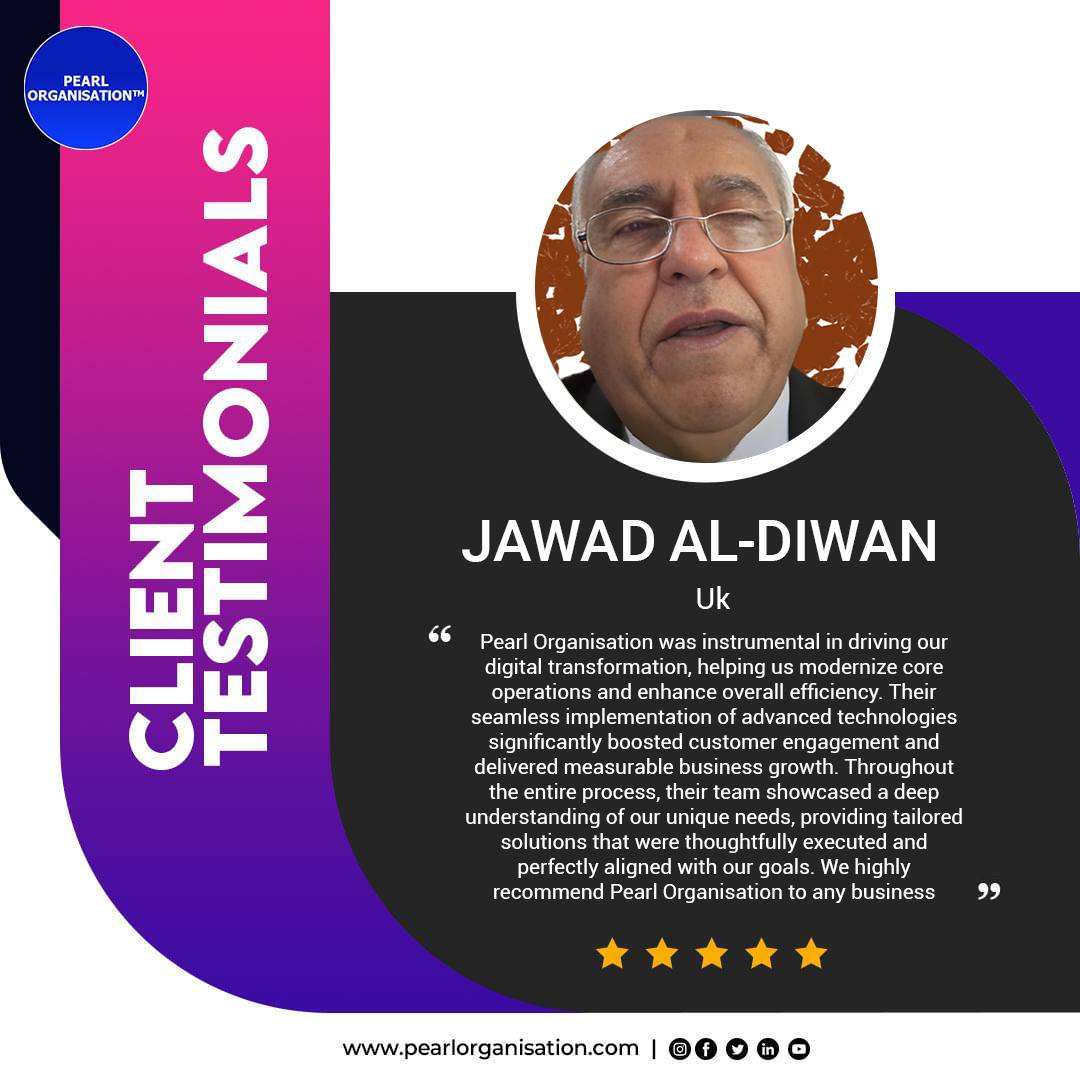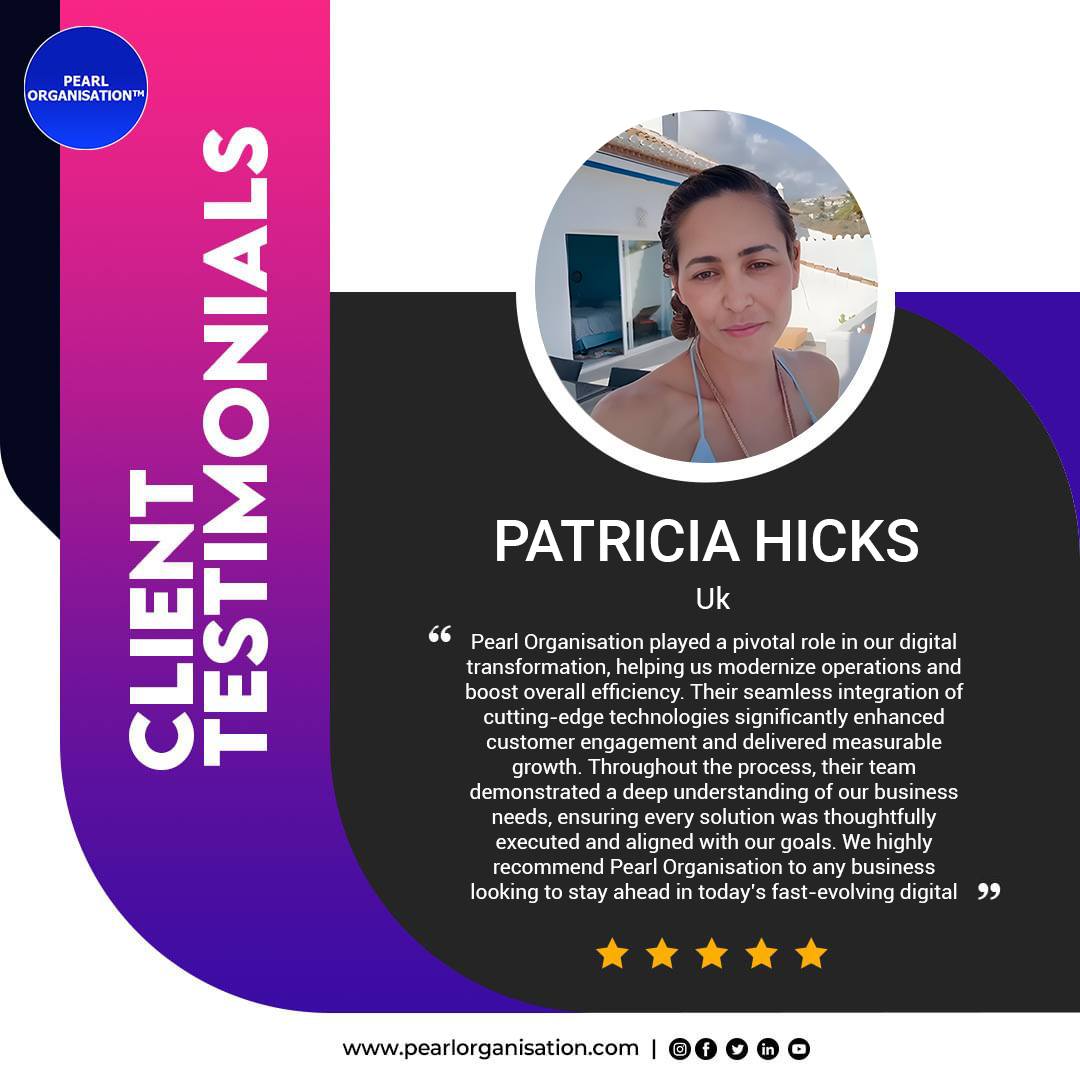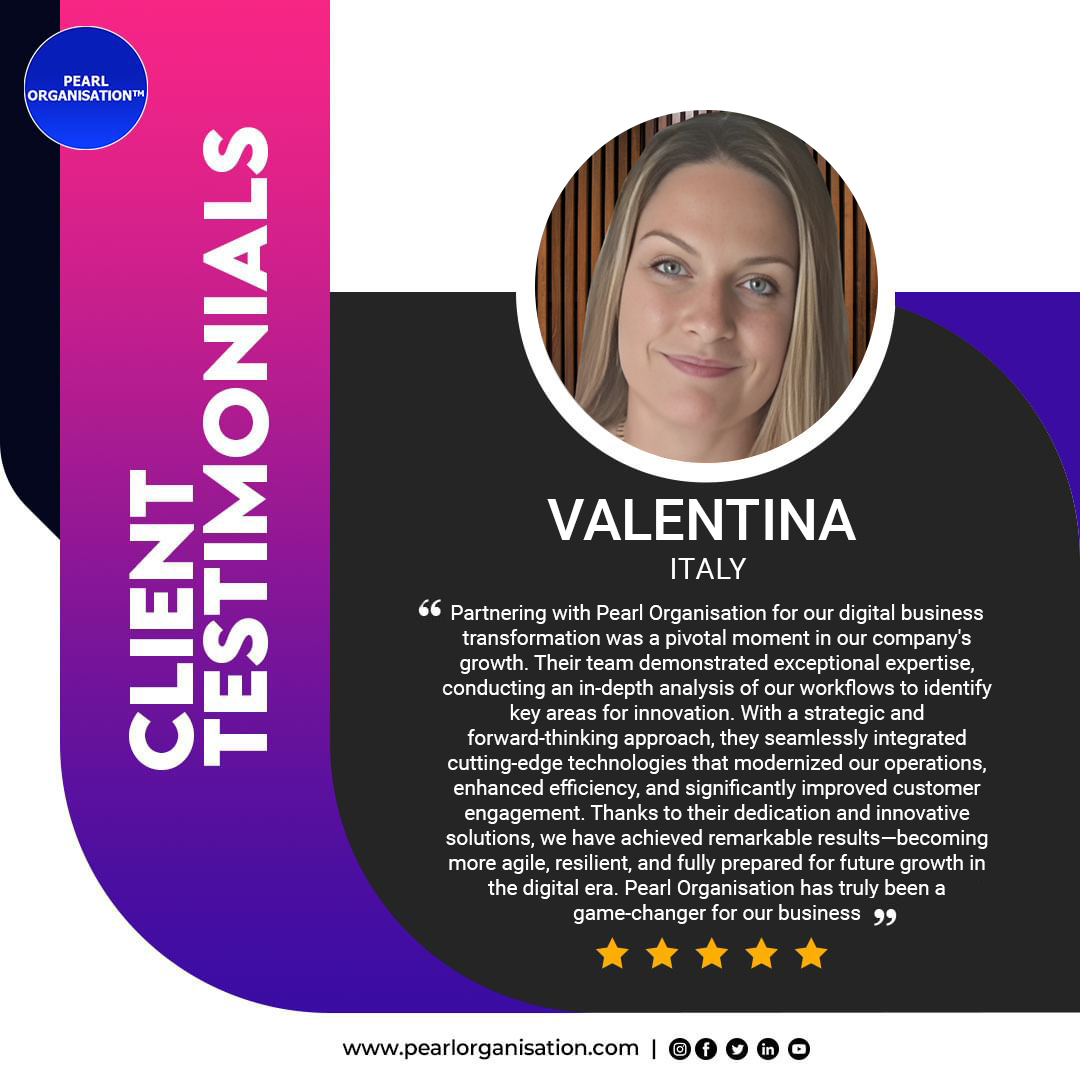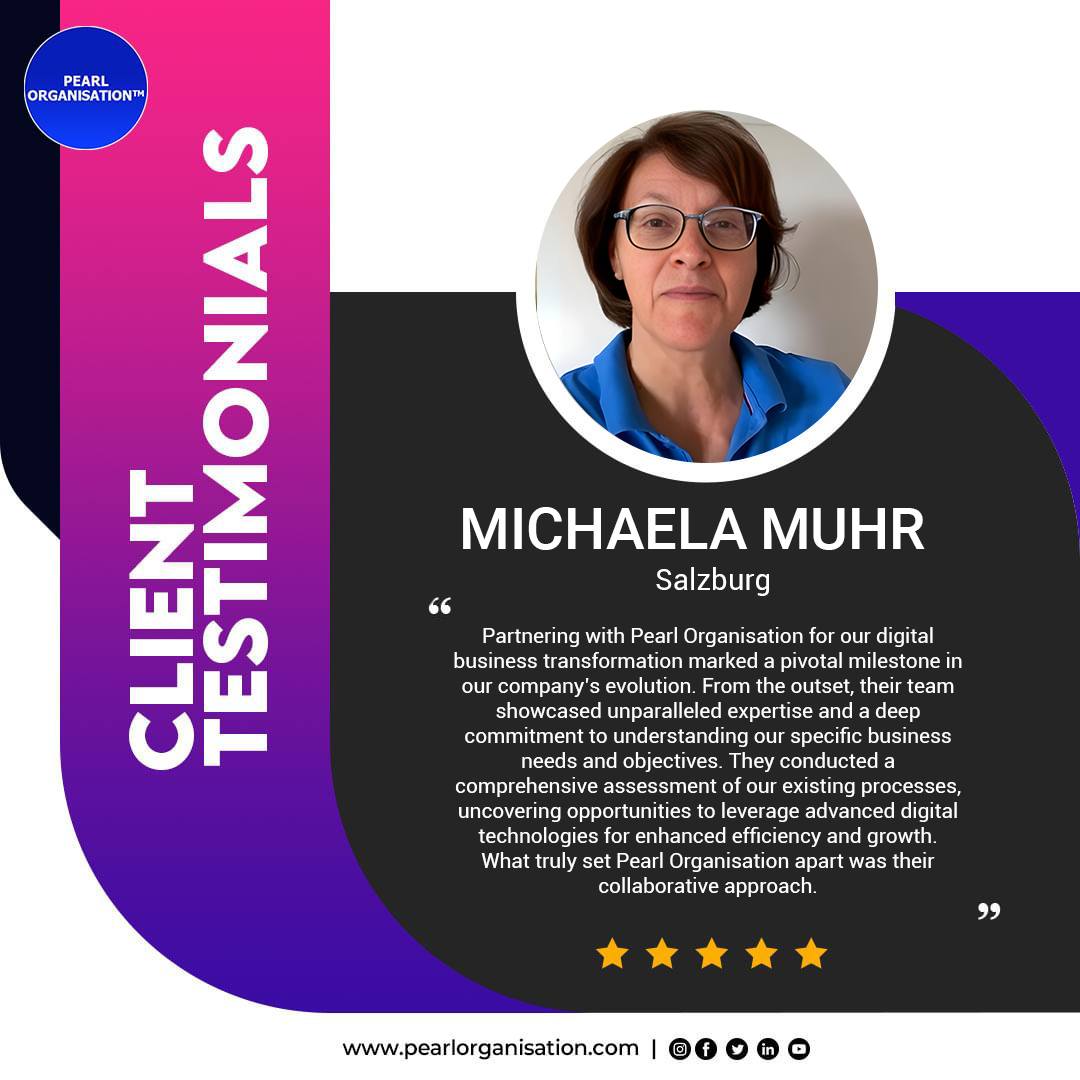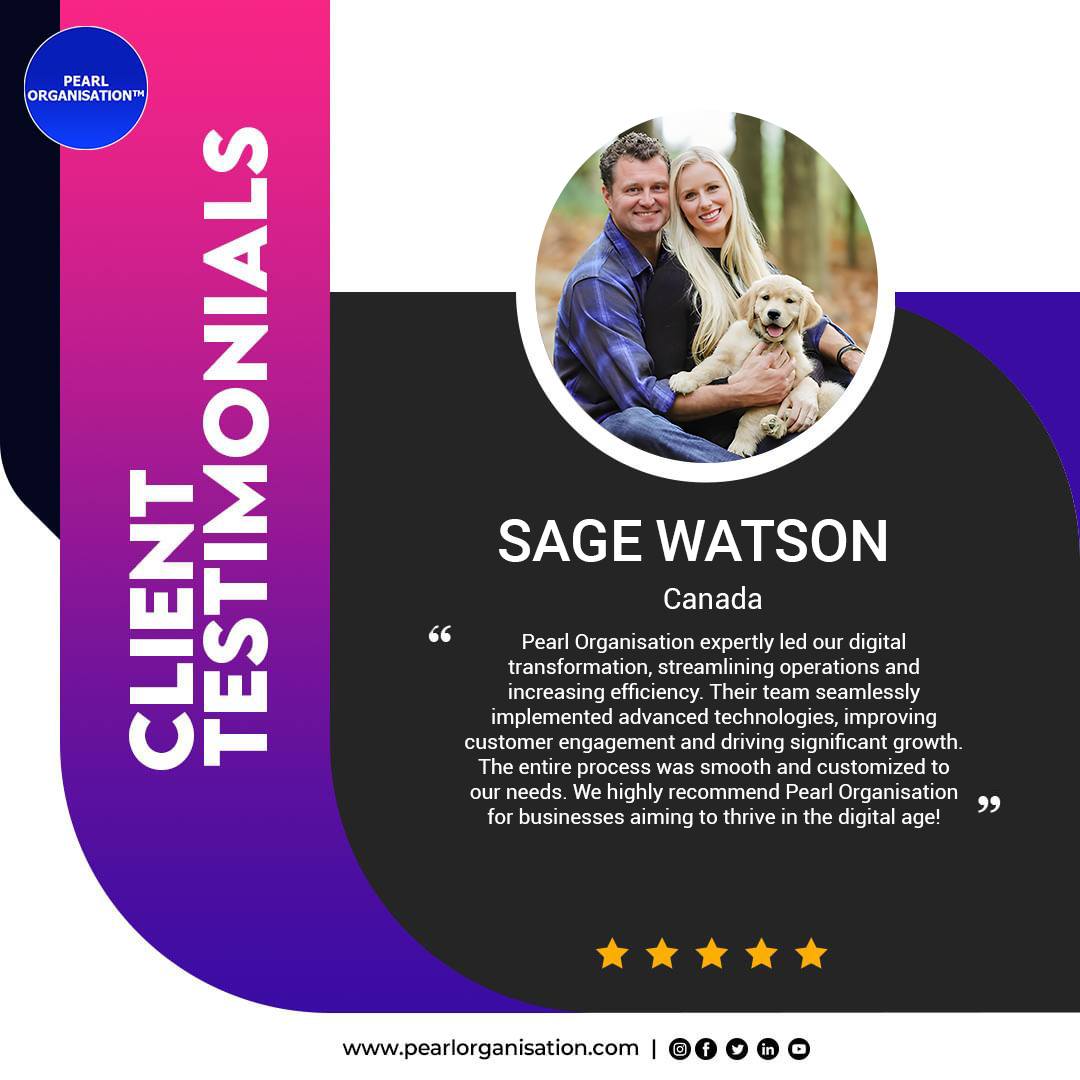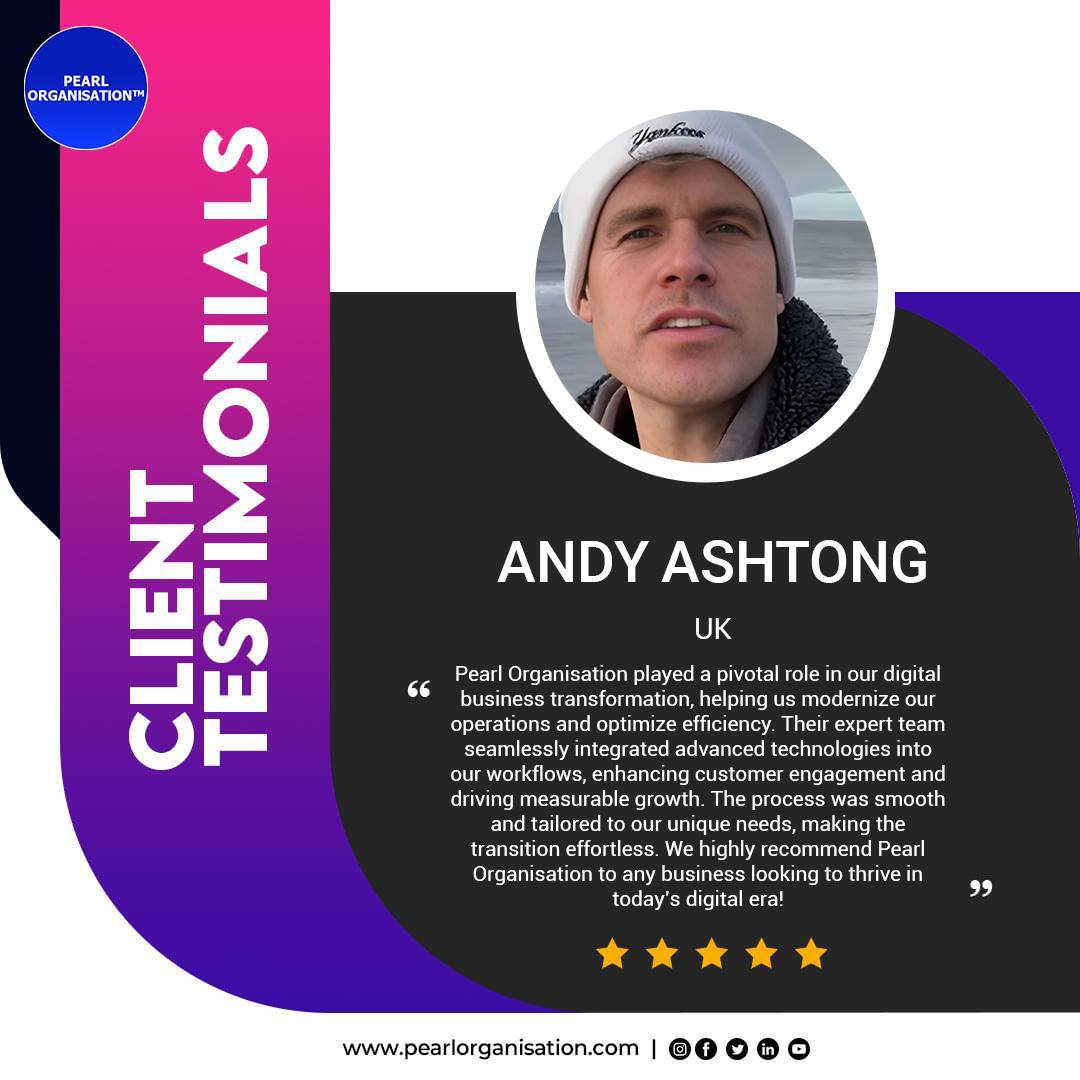Why Agile IT Environments Are Critical for Business Survival
- Jul 24, 2025
- 8 min read
Pearl Organisation’s Strategic Framework for Resilient, Fast-Moving, and Innovation-Driven Enterprises

Introduction: Agility Is the Currency of Survival
Digital disruption isn’t a future possibility — it’s the current reality. The pace of change in markets, customer expectations, and technologies has accelerated beyond traditional planning cycles. Businesses must now move faster, learn quicker, and deliver value continuously, or risk becoming obsolete. In this hyper-dynamic landscape, Agile IT environments are not just helpful — they are existentially essential.
At Pearl Organisation, we help organizations around the world transform from rigid, linear models to adaptive, customer-centric ecosystems using Agile frameworks, DevOps, and continuous delivery methodologies. With clients in over 150 countries and delivery teams working across time zones, we embed agility not only in technology — but into the very DNA of business operations.
The Problem with Traditional IT Environments
In conventional IT setups, delivery is slow, feedback is delayed, change is expensive, and user satisfaction is secondary to internal structures. This model suffers from:
These limitations become acute when competing against digital-native firms with weekly deployments, real-time analytics, and agile experimentation.
What Is an Agile IT Environment?
An Agile IT environment is not just about following Scrum ceremonies or using Jira. It’s a philosophy, architecture, and operational ecosystem built on:
Agile isn’t a destination — it’s a continuous journey of improvement that keeps businesses flexible and forward-moving.
Key Business Drivers for Agile IT Environments
1. 🔁 Speed Is Survival
Today’s competitive edge is measured in weeks, not years. Agile IT enables:
Biweekly feature releases instead of quarterly updates
MVP launches in under 8 weeks
Fail-fast, learn-faster experimentation
Predictable delivery via backlog grooming and sprint planning
Pearl Organisation’s DevOps-ready CI/CD pipelines ensure new code moves from commit to production in hours — not days or weeks.
2. 👂 Real-Time Customer Feedback = Product-Market Fit
Traditional IT collects user feedback months after deployment. Agile systems:
Embed user behavior analytics into sprint cycles
Use A/B testing for decision-making
Deploy changes based on real usage data
Optimize UI/UX continuously
Pearl helps clients use tools like Mixpanel, Hotjar, and custom analytics dashboards to fuel smarter sprint retrospectives.
3. 💡 Innovation Is a Continuous Process
Agile enables businesses to:
Introduce new features incrementally
Evaluate viability using lean experiments
Pivot without re-architecting entire systems
Embrace emerging technologies like AI, blockchain, and IoT quickly
Pearl Organisation integrates Agile with advanced tech enablement, helping clients evolve faster than their competitors.
4. 🔐 Security, Compliance, and Resilience
Agile doesn’t ignore stability. It enhances it through:
Shift-left security (DevSecOps)
Automated compliance audits and alerts
Real-time threat modeling within delivery cycles
Zero-downtime deployment with canary or blue-green releases
Pearl Organisation embeds ISO, HIPAA, GDPR, and SOC 2 compliance workflows into every delivery pipeline.
Pearl Organisation’s Agile IT Delivery Blueprint
Our Agile methodology is structured across four core dimensions, tailored to client needs and industry maturity:
1. 🧭 Strategic Agile Transformation
Agile discovery workshops with business leaders
Stakeholder buy-in and capability assessment
Agile Center of Excellence (CoE) roadmap creation
Metrics aligned to business goals (velocity, NPS, cycle time, etc.)
Example: A manufacturing ERP transformation project saw a 40% improvement in module rollout speed after Pearl led Agile workshops and governance restructuring.
2. 🔁 Agile Development Lifecycle
Scrum-based team structure (Product Owner, Scrum Master, Devs, QA)
Kanban boards for operational process optimization
Daily stand-ups, backlog grooming, sprint planning, reviews, and retros
Continuous integration & automated testing from sprint zero
Outcome: Deliverables are visible, testable, and business-aligned every 2 weeks — not hidden in waterfall black boxes.
3. 🧪 Continuous Testing, Deployment & Monitoring
Automated unit/integration/UI tests
Git-based version control and branching
Jenkins/GitHub Actions pipelines
Grafana/New Relic dashboards for performance and uptime
Canary/Blue-Green deployments with rollback automation
Result: Error rates drop, release velocity rises, and stakeholder confidence improves dramatically.
4. 🧠 Agile Enablement Through Tools & Culture
We support industry-standard toolchains and foster Agile culture through:
Function | Tools Used |
Project Management | Jira, Trello, ClickUp |
Communication | Slack, MS Teams, Google Meet |
DevOps & CI/CD | Jenkins, GitHub Actions, GitLab, Docker |
Monitoring & Feedback | Grafana, Prometheus, Mixpanel, Hotjar |
Code Quality & Security | SonarQube, Snyk, OWASP Dependency Checks |
We also conduct team training, playbook development, and governance reviews to mature Agile practices across departments.
Global Success Stories at Pearl Organisation
🌍 Public Sector Digitization (Africa)
Agile project to digitize rural government services
Iterative module release over 9 months
Enabled real-time analytics for over 100K users
🛒 eCommerce MVP to Scale-Up (UAE)
Pearl’s Agile DevOps team delivered MVP in 5 weeks
Weekly releases maintained for 18 months
Resulted in 6X monthly orders and 3X customer retention
🧪 AI Workflow for Clinical Trials (UK)
Agile-driven data ingestion + model tuning pipeline
Deployed across AWS with CI/CD integration
Reduced time-to-insight by 40%
Why Pearl Organisation for Agile IT?
✅ 150+ countries served
✅ Agile Certified Scrum Masters, Product Owners, and DevOps Engineers
✅ ISO-compliant and GDPR-secure agile delivery
✅ Toolchain-neutral and cloud-native ready
✅ Proven track record across finance, health, government, logistics, SaaS
Final Thoughts: Adaptability Is the New Efficiency
In the modern digital economy, agility isn’t a luxury — it’s survival strategy. Businesses with rigid architectures, disconnected teams, and delayed release cycles will fail to meet market demands. Agile IT environments are not just about building better software — they’re about building better businesses.
Pearl Organisation helps you unlock this agility at scale — so you can survive disruption, and thrive in it.
🚀 Let’s Build Your Agile Edge🔗 https://www.pearlorganisation.com/agile-software-development-company
💬 Schedule a strategic call and begin your Agile transformation today.
Frequently Asked Questions (FAQs) – Agile IT Environments & Services by Pearl Organisation
Q1. What exactly is an Agile IT environment, and how does it differ from traditional IT setups?
Answer:
An Agile IT environment is a flexible, iterative, and continuously improving system of software delivery, infrastructure, and organizational structure that supports rapid change, innovation, and customer responsiveness. Unlike traditional IT environments, which operate in rigid silos with long release cycles, Agile environments:
Use sprint-based planning and delivery
Empower cross-functional teams to make decisions
Integrate DevOps, CI/CD, and cloud-native tools
Prioritize customer feedback and iterative product evolution
Pearl Organisation’s Agile IT setups are designed to scale globally, deploy continuously, and adapt rapidly to change — which is critical in today’s volatile digital markets.
Q2. Why is Agile IT considered essential for business survival in 2025 and beyond?
Answer:
Agile IT is essential because the business environment is:
Faster: Markets evolve in days, not years
Uncertain: Economic disruptions, regulatory shifts, and tech changes are constant
Customer-driven: Feedback loops now operate in real time
Innovation-focused: New ideas must be tested, launched, and iterated quickly
Without Agile practices, companies face slower time-to-market, higher costs, and a poor customer experience — often leading to irrelevance. Pearl Organisation equips clients with enterprise-grade agility to remain competitive, responsive, and resilient.
Q3. What industries benefit the most from Agile IT practices?
Answer:
While Agile originated in software, it is now adopted across all industries. Pearl Organisation delivers Agile transformation in:
Finance & FinTech: Real-time banking apps, fraud prevention pipelines
Healthcare & MedTech: HIPAA-compliant patient portals, telehealth systems
eCommerce & Retail: Agile storefronts, dynamic pricing engines, PWA-based apps
Education & EdTech: Agile LMS, testing systems, adaptive content delivery
Government & Smart Cities: Citizen service automation, iterative public portals
Logistics & Manufacturing: Just-in-time analytics, supply chain agility systems
Every industry that demands fast feedback, process adaptability, or digital products benefits from Agile.
Q4. How does Pearl Organisation implement Agile across global teams and locations?
Answer:
Pearl uses a global delivery model that ensures Agile teams are productive across time zones:
Distributed Scrum and Kanban boards
Cloud-based collaboration via Jira, Trello, Figma, GitHub, Slack, and Zoom
Regional Agile pods to minimize timezone gaps
Common Agile playbooks and rituals (standups, retros, demos)
Nearshore/offshore blending for 24/7 progress
We ensure that clients in the US, Europe, GCC, Africa, and Asia receive agile benefits without operational friction.
Q5. What’s the difference between Agile, DevOps, and CI/CD — and how are they connected?
Answer:
Agile is the project and product mindset that promotes iterative delivery, user feedback, and adaptive planning.
DevOps is the cultural and engineering discipline that ensures development and operations teams collaborate to automate and optimize releases.
CI/CD (Continuous Integration & Continuous Deployment) is the technical automation layer that turns Agile and DevOps principles into fast, secure, and frequent code releases.
Pearl Organisation integrates all three to ensure Agile isn’t just theory — it becomes real, operational success.
Q6. How does Agile support compliance, security, and auditability?
Answer:
Agile, when paired with DevSecOps, actually improves compliance and security by:
Shifting security left into development (static code analysis, threat modeling)
Automating compliance checklists and test coverage
Version-controlling all infrastructure and changes (IaC)
Maintaining audit logs via tools like ELK, Grafana, and SonarQube
Embedding ISO 27001, GDPR, HIPAA, and SOC 2 policies into pipelines
At Pearl Organisation, we build Agile environments with secure-by-design architecture and audit-friendly pipelines.
Q7. What tools and platforms does Pearl Organisation use to deliver Agile IT solutions?
Answer:
We are tool-agnostic and adapt to client ecosystems. Common tools include:
Function | Popular Tools Used |
Project Management | Jira, Trello, ClickUp, Asana |
CI/CD Automation | Jenkins, GitHub Actions, GitLab CI, Bitbucket |
Code Repositories | Git, GitHub, GitLab, Bitbucket |
Communication | Slack, MS Teams, Zoom, Google Meet |
Design & Prototyping | Figma, Adobe XD, InVision |
QA Automation | Cypress, Selenium, TestRail, Postman |
Monitoring & Logs | Grafana, Prometheus, New Relic, ELK Stack |
Security & Compliance | Snyk, SonarQube, OWASP ZAP, Vault |
These tools are part of our Agile toolkit library, customized for every client.
Q8. Can existing waterfall or legacy development teams transition to Agile?
Answer:
Yes. Pearl Organisation specializes in Agile transformation. We:
Conduct Agile readiness audits
Establish an Agile Center of Excellence (CoE)
Train internal stakeholders and product owners
Pilot Agile teams and scale based on maturity
Migrate legacy monoliths into modular agile-friendly services
Implement Agile metrics (velocity, lead time, defect rate)
We’ve helped companies move from 6-month release cycles to biweekly production rollouts — all while improving quality and collaboration.
Q9. What KPIs or business metrics improve in Agile environments?
Answer:
After Agile adoption, clients typically observe:
40–80% reduction in release cycle times
20–60% increase in team productivity
30–70% faster bug resolution time
15–50% improvement in customer satisfaction (NPS)
Up to 5x ROI within 12–18 months
We track KPIs such as: sprint velocity, deployment frequency, lead time for changes, mean time to recovery (MTTR), and user churn rate — all via real-time dashboards.
Q10. How does Agile IT affect cloud, AI, and modern technologies adoption?
Answer:
Agile environments make it easier to integrate:
Cloud-native services (AWS, Azure, GCP)
Microservices, containers, and Kubernetes orchestration
AI models (chatbots, NLP, analytics) in incremental releases
RPA for backend automation in workflows
Headless CMS and composable architectures
Pearl Organisation ensures your architecture evolves in sync with your business and tech trends, thanks to Agile's modular and testable frameworks.
Q11. What’s the ideal project type or size to start Agile with Pearl Organisation?
Answer:
Agile works for:
Small projects: MVPs, internal tools, landing pages
Medium projects: E-commerce stores, booking platforms, CRMs
Large programs: Multitenant SaaS, ERPs, analytics engines
We recommend starting with a pilot team or module, then scaling across product lines or geographies. Our Agile engagements are built to scale progressively with business maturity.
Q12. How can a company start working with Pearl Organisation on Agile IT delivery?
Answer:
The onboarding process is quick and globally accessible:
Visit https://www.pearlorganisation.com/agile-software-development-company
Click on “Book Free Agile Consultation”
A certified Agile advisor will connect with you within 24–48 hours
We’ll conduct a free Agile readiness audit or product discovery session
You’ll receive a tailored proposal with timelines, tools, delivery model, and cost
From pilot sprint to global agile transformation, Pearl Organisation becomes your execution arm and strategic guide.





























